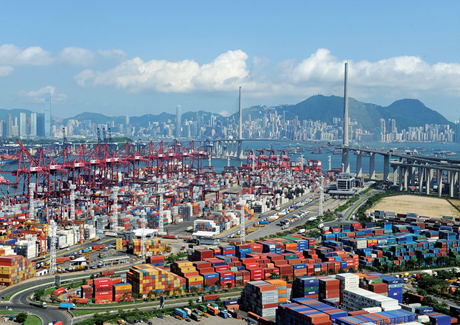 |
| Chris Okwy Ndibe |
On Monday, I tweeted that the “optimum role
of the public and private sectors in creating successful free zones involves a
balancing between the public services and infrastructure and private sector ,
Management experience flexibility and marketing efficiency”.
from the start of this Scheme, Export Processing Zones were planned and managed
by designated government agencies as part of general policy of the state, aimed
at an increase in industrial investment, enhancement of industrial reputation
of new manufacturing companies. The main aim is to increase exports, usually to
replace an import substitution situation. Also often aimed at increasing
employment, foreign currency earnings; and further investments outside the
zone.
success of this is a situation where there are no insurmountable difficulties;
politically, socially, or financially. Once a zone succeeds, other investors
come with their adjoining industries like tourism and services.
leadership of the host country has the responsibility of looking at the enabling
laws, making the incentive attractive, putting the infrastructures; i.e.
“encompassing facilities”….. not only in terms of electricity, water and sewer,
but port handling facilities, rail and high way facilities as well.
provision of infrastructure splits into two:
Behind
the zone fence which is the responsibility of the state. Without this an
investor may not be interested.
just physical infrastructure, but incentives, support services and a programme
of pro-investment policies. Infrastructure is always part of national policy.
Private operators either take over a zone originally built by government, or
apply to construct it on a site suitably linked to good quality infrastructure.
operators only accept the business risk if the state does its part, since they
have to finance not only factory construction, but also service hook ups, staff
cost and promotional budgets.
skills, combining real estate know-how, industrial estate management, marketing
research, personnel and training.
ensure a profitable zone operation, the charges made to investors, to cover
factory rent and services have to be low enough to be an acceptable cost input
to the cost of production which manifests in export price calculations. Also
with raw materials, wage costs, taxes and fees have to be low enough to
accommodate these charges.
operators of zones also have not only to be cost-efficient, but the cost of
renting land has to be low
private operators are encouraged because of high calibre of industrial managers
which are needed in zones management structure to negotiate with government and
banks, and at the factory level, to deal with the owner/investors, who rent
factories and expect high level of services. The private sector now takes over
the management responsibility in the zone, while serving the policy objectives
of creating employment and earning foreign exchange. Besides, it is the global
trend now to privatise what was previously a function of government.
first when the zone scheme started, all EPZs were government owned; later
governments saw the wisdom of allowing the private run the zone and still
achieve the government objectives. This stems from general realization by World
Bank and other major aid agencies that the private sector involvement hired well
qualified experts with line management experience of private sector
manufacturing, marketing or market research.
III…………..






